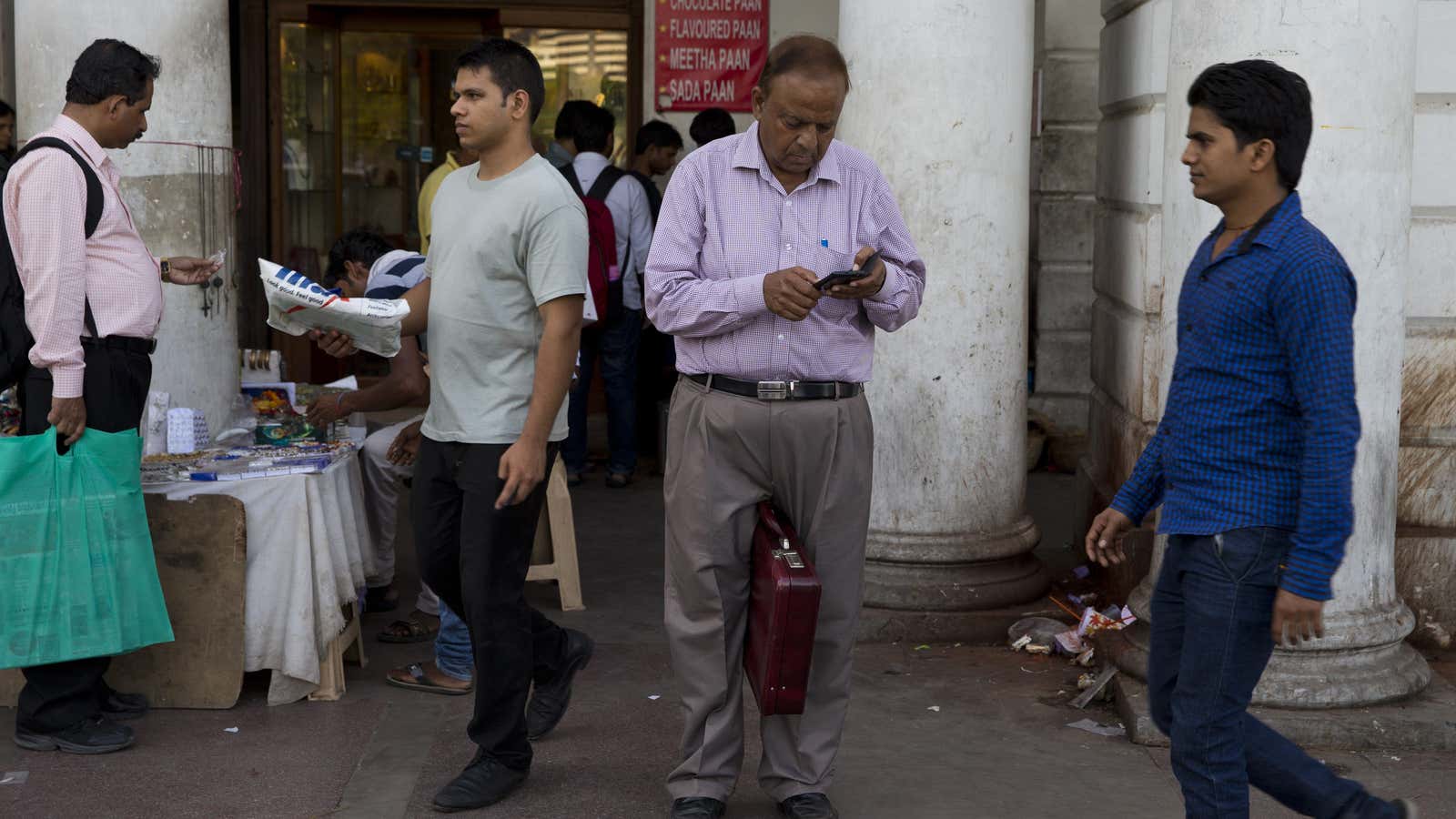Indian consumers are swapping mobile wallets for the government-initiated Unified Payments Interface (UPI).
UPI is an instant payment interface that allows users to transfer money via an app without having to share any bank account details.
In October 2016, two months after UPI was launched, the ratio of wallet-to-UPI transactions stood at 96:4. By March 2017, the scales had tipped massively. Wallets were left with a far smaller 36% of the share as UPI raced ahead to claim 64%, data from Bengaluru-based payments platform Razorpay show.
The research does not incorporate the country’s largest mobile wallet, Paytm, because it is not available through Razorpay’s payments gateway. However, transactions with other major players like Mobikwik, Freecharge, Ola Money, PayUMoney (before it shut), PayZapp, JioMoney, Airtel Money, and more, were taken into account.
“We noticed that UPI is being used for the same things that wallets are used for—high-frequency, low-value transactions,” Harshil Mathur, Razorpay co-founder and CEO, told Quartz. Only the UPI platform’s transactions cut out the cumbersome intermediary step of loading money onto a platform before making a payment, which wallets still require. Bank account holders in India always exceeded in number than e-wallet users—all of whom can start doing e-commerce transactions directly with UPI.
While the average transaction size of bank transfers and net banking was up in tens of thousands of rupees, both wallet and UPI ticket sizes hovered at an average of around Rs2,000 ($30.84). That’s despite UPI having a large daily limit of Rs1 lakh.
Customer behaviour shows that UPI and wallets, both easily accessible via mobile apps, are considered interchangeable. “Because they’re similar, they are cannibalising each other,” Mathur said. So, any hit to wallets scores a win for UPI. That’s why the biggest dip in mobile wallet usage occurred after know-your-customer (KYC) norms were made mandatory for wallet users starting March 01. Wallets dropped to 36% of all UPI and wallet transactions on Razorpay in March, down from 49% the month before.
Wallets may lose more takers as a result of this new KYC rule. Those who fail to comply are barred from loading money into their wallets, carrying out transactions, or transferring the balance amount from their wallet account into their bank accounts. All they are left to do is exhaust the existing money.
“Since UPI is linked to bank accounts, where the KYC is already done, customers who were using wallets earlier and were too lazy to do KYC switched to UPI instead,” Mathur said.
